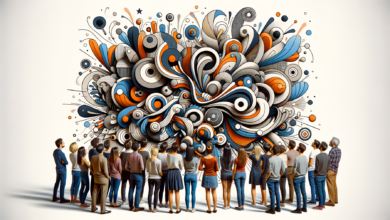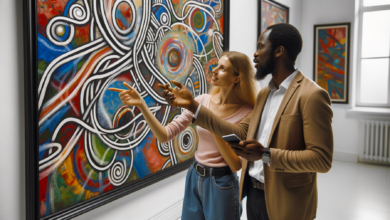The Psychology Behind Attraction and Love

What draws us to another person, and how do we come to love them? The psychology behind attraction and love is a fascinating blend of biology, psychology, and sociology. We don’t just fall in love by chance; various elements play into the chemistry between people, leading to strong feelings of attraction and, potentially, deep love.
Understanding Attraction: The Basics
Attraction comes in many forms – physical, emotional, intellectual, and more. At its most basic level, attraction is about finding someone appealing and wanting to be around them.
The Role of Biology in Attraction
Biology is a powerful force in our attraction to others. Pheromones, those biochemical secretions, play an invisible role in pulling us towards certain individuals. These subtle scents may tap into our subconscious preferences for a mate with a different genetic blueprint, which, from a biological standpoint, could lead to healthier offspring.
Studies also point to the influence of hormones such as dopamine and oxytocin in the experience of attraction. Dopamine creates feelings of euphoria, while oxytocin is often referred to as the ‘cuddle hormone,’ associated with bonding and attachment.
Physical Attraction: The Importance of Aesthetics
Physical attraction often sparks the initial interest in another person. It is guided by what we find aesthetically pleasing. Society’s standards play a role, but individual preferences are just as important. Symmetry is commonly understood as a universal marker for beauty, as it suggests good genes and health.
The Allure of Personality
But physical attraction is only part of the equation. Our personalities, or the perceived traits of the other person, are crucial in feeling drawn to them. Qualities like kindness, intelligence, humor, and integrity can make someone infinitely more attractive to us.
Shared Values and Beliefs
Alignment in values and beliefs forms a strong foundation for attraction as well. When you share similar viewpoints and moral compasses with someone, it’s easier to connect on a deeper level, which can be a significant point of attraction.
The Mystery of Chemistry
Chemistry is a term often used to describe the intangible, electrifying connection between people. It’s not something that can necessarily be seen or measured, but it’s palpable to those experiencing it. Chemistry might include a blend of physical attraction, intellectual stimulation, and emotional connection.
The Ingredients of Love
Once attraction brings two people together, love can start to grow. Love is more complex and involves a combination of factors that contribute to a strong, lasting bond.
The Triangular Theory of Love
Psychologist Robert Sternberg’s Triangular Theory of Love explains that love has three components: intimacy, passion, and commitment. Intimacy refers to feelings of closeness and attachment. Passion involves physical and sexual attraction, while commitment reflects the decision to stay with someone long-term.
Attachment Styles in Love
Our experiences in early life can influence how we love. Attachment theory, initially developed by psychologist John Bowlby, suggests that the type of care we received as infants may determine our attachment style – secure, anxious, avoidant, or disorganized – and affect our relationships as adults.
The Journey Through Romantic Love
Romantic love tends to progress through stages, starting with infatuation and potentially developing into a deeper, more mature love.
From Infatuation to Deep Affection
Infatuation is characterized by high levels of passion and a desire to be with the other person constantly. Over time, if the relationship endures, this can transition to a love that is less about passion and more about deep affection, mutual respect, and a strong bond.
The Power of Commitment
For love to last, commitment is key. This goes beyond staying together; it’s about building a life together, supporting each other’s growth, and continually nurturing the relationship.
Love in the Digital Age
Today’s technology has changed how we experience attraction and love. Dating apps and social media platforms provide new ways of meeting and connecting with potential partners.
Finding Love Online
Online dating can affect how we perceive attraction. Profiles offer snapshots of individuals, often highlighting physical attributes and interests. While this can lead to matches, the lack of initial in-person interaction can change how relationships progress.
Impact of Social Media
Social media allows us to present idealized versions of ourselves, which can influence attraction. But it can also place pressure on relationships as partners navigate the complexities of an online presence.
Finishing Thoughts
The dance between attraction and love is intricate and unique to each pair of individuals. We might all experience attraction and develop feelings of love in diverse ways, based on a blend of biology, psychology, and social factors. Love is one of life’s most profound mysteries and understanding its psychology can only deepen our appreciation for this human experience. Love’s journey is as challenging as it is gratifying, and embracing its complexity can enrich the relationship we have with ourselves and with others.




